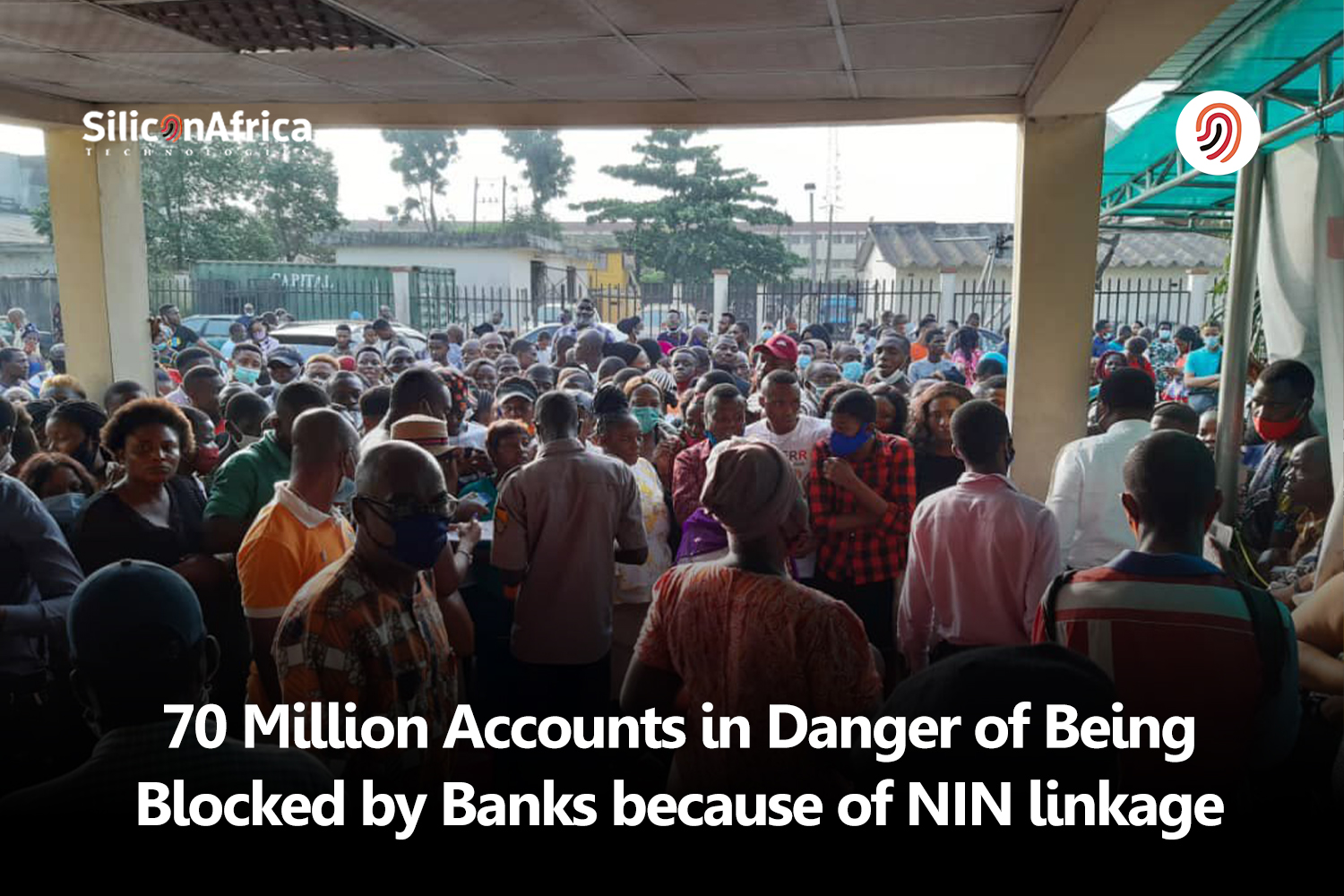Physical Address
60 Ekwema Cres, Layout 460281, Imo
Physical Address
60 Ekwema Cres, Layout 460281, Imo

Over 70 million bank accounts in Nigeria face the possibility of being restricted due to the Central Bank of Nigeria’s (CBN) directive linking the National Identification Number (NIN) to Bank Verification Numbers (BVNs).
This policy, aimed at enhancing financial security and combating fraud, has created significant concerns for many bank customers who haven’t yet completed the linkage process.
The CBN issued a circular on December 1, 2023, mandating a “Post no Debit” restriction on all accounts without both BVN and NIN linkage by Friday, March 1, 2024.
This essentially means that affected accounts will be unable to initiate debit transactions, including withdrawals, transfers, and online payments.
Experts and industry stakeholders have expressed anxieties regarding the potential impact of this policy.
The primary concern lies in the large number of unlinked accounts.
As of today, only about 104 million NINs have been issued, falling short of the estimated 200 million expected to have NINs.
Similarly, the number of registered BVN holders stands at around 59.9 million, leaving a significant gap compared to the estimated 134 million existing bank accounts.
This translates to a potential disruption for over 70 million bank accounts, raising concerns about financial accessibility, particularly for individuals residing in remote areas or facing challenges obtaining their NINs.
The Nigerian Labour Congress (NLC) has voiced concerns, urging the government to address these issues and provide adequate support for citizens struggling to comply with the directive.
To address these concerns, the CBN has emphasized the importance of public awareness and sensitization campaigns.
Banks are actively informing their customers about the deadline and the steps involved in the linkage process.
Additionally, efforts are underway to streamline the NIN registration process and make it more accessible to the public.
This includes expanding enrollment centers and leveraging alternative channels for registration.
The success of this policy hinges on a collaborative effort between the CBN, banks, and the National Identity Management Commission (NIMC).
Ensuring efficient communication, addressing logistical challenges, and providing adequate support mechanisms are crucial to minimizing disruptions and ensuring a smooth implementation.
Read More: 4.2 Million Lines not Linked to NIN Disconnected by MTN
The potential benefits of linking NINs to BVNs are undeniable.
Enhanced security, improved identification verification, and reduced instances of fraudulent activities are significant advantages.
However, navigating the implementation process requires a sensitive and inclusive approach.
Addressing the concerns of unlinked account holders, providing adequate support, and ensuring accessibility remain key priorities in the coming weeks.
It is crucial for individuals to take proactive steps by checking their bank accounts’ status and initiating the linkage process as soon as possible.
Banks have detailed information and resources available on their websites and through customer service channels to guide individuals through the process.
By working together, the stakeholders involved can ensure a smooth and successful implementation of this policy, ultimately fostering a more secure and robust financial ecosystem in Nigeria.